#Violaceae
Explore tagged Tumblr posts
Text



V – Viola tricolor L. – Viola del pensiero (Violaceae)
296 notes
·
View notes
Text

Pensées en boîte…
#photography#original photography#original photography on tumblr#provence#luberon#pensées#violaceae#volets#boîte de conserve
59 notes
·
View notes
Text
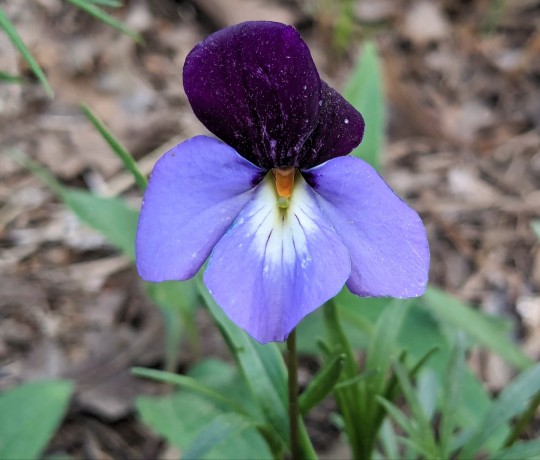

Bird's Foot Violet
Viola pedata
Named after its leaves which resemble a bird's foot... This gorgeous violet is native to a large portion of eastern North America and thrives in sandy areas, rocky slopes, and other sunny, very well-drained habitats that are undisturbed. Three different color varieties can be found in the wild; bicolor (pictured above), lilac, and white. I have found both the bicolor and solid lilac varieties in abundance within glades and some prairies here in Missouri. Additionally, this species hosts fritillary butterfly larvae and provides nectar to many other butterflies and bees.
April 18th, 2024
St. Francois County, Missouri, USA
Olivia R. Myers
@oliviarosaline
#botany#plants#nature#viola#Viola pedata#violets#bird's foot violet#naturecore#flowers#the ozarks#ozarks#Missouri#hiking Missouri#Violaceae#wild flowers#wildflowers#native flowers#native plants#prairies#prairie#glades#purple flowers#violet flowers#purple#violet#pansies#pansy#fairycore#nature photography#flower photography
38 notes
·
View notes
Text

Viola canadensis / Tall White Violet at the Sarah P. Duke Gardens at Duke University in Durham, NC
#Viola canadensis#Viola#violaceae#Tall white violet#White violet#Canadian white violet#Canada violet#Edible plants#Edible flowers#Native plants#Native flowers#Plants#Flowers#Nature photography#photographers on tumblr#photography#Sarah P. Duke Gardens#Duke Gardens#Duke University#Durham#Durham NC#North Carolina#🌺🌻
12 notes
·
View notes
Text
#2658 - Melicytus alpinus - Porcupine Shrub


AKA Hymenanthera dentata var. alpina, and Hymenanthera alpina. Melicytus comes from the Greek for 'honey cave' and refers to the staminal nectaries of the flowers.
Another unfriendly plant growing on the moraine of the Tasman Glacier, although unlike the Bush Lawyer previously this growth form may have been evolved to protect the leaves from the harsh climate, or possibly from hungry Moa.
Melicytus alpinus can be found in both the North and South Island of New Zealand in coastal and in dry alpine areas, shrugging off cold, drought, soils that are little more than broken rock, and dry saline ground. It is most common in the South Island high country.
Favoured habitat for many of New Zealand's lizards, who eat the fruit and spread the seeds.
Aoraki/ Mt Cook, Aotearoa New Zealand
3 notes
·
View notes
Text
Common dog-violet (Viola riviniana) wildflower photo I took 12/05/2024, Wakefield, West Yorkshire, UK

#nature#nature photography#wild#british nature#violet flower#violet flowers#violets#violet#violas#viola#violaceae#purple flower#purple flowers#purple#wildflora#wildflower photography#wildflower#wildflowers#wild flowers#flowers#flower photography#flower#wild plants#wild plant#plant photography#plants#plant#botany#blooms#bloom
9 notes
·
View notes
Photo



Longspur violet, one of my favorites
14 notes
·
View notes
Link
Autor: Olga Guedes
0 notes
Video
Hornveilchen by Petra Wruck Via Flickr: Frühling auf dem Balkon. Foto: Petra Wruck
0 notes
Text




V – Viola odorata L. – Viola mammola (Violaceae)
89 notes
·
View notes
Text
Viola sororia - common blue violet
Native
Violet Family (Violaceae)
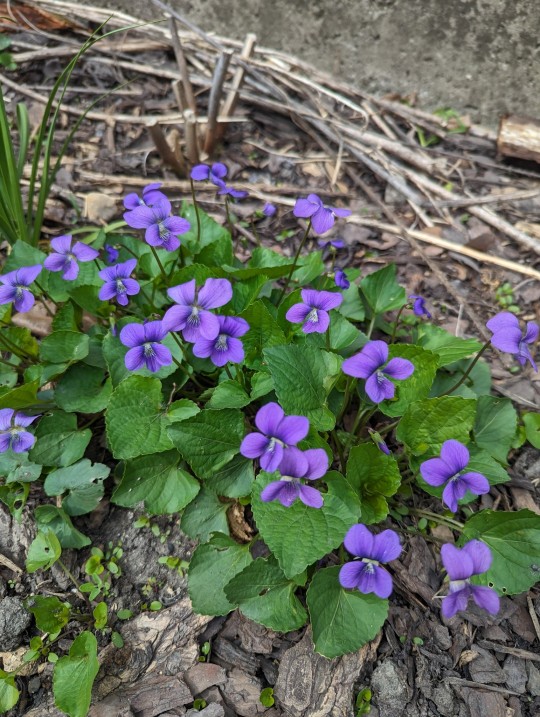
Bloom: Mid-April
Notes: this is growing everywhere, really cool rhizomes. I couldn't get rid of this if I tried
Links:
#Viola sororia#Common Blue Violet#Native#In yard#April#May#Violaceae#Violet Family#Z1#Z2#Z3#Z4#Z5#Z6#Z7#Z11#Z15#Z16#Z19#Basically everywhere#purple#illinois native plant#volunteer
0 notes
Text
Shout out to the Violet Carpenter bees with their iridescent wings
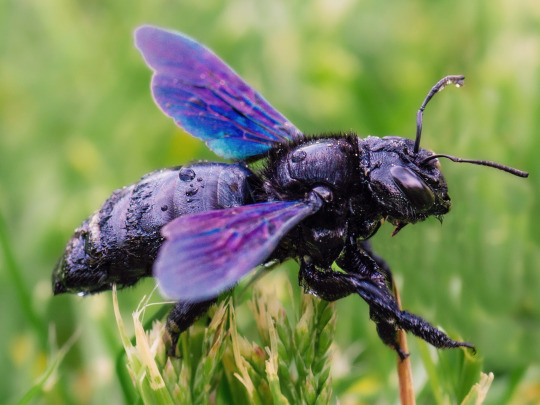
(Source: The John Russell Honey Company)
8K notes
·
View notes
Text

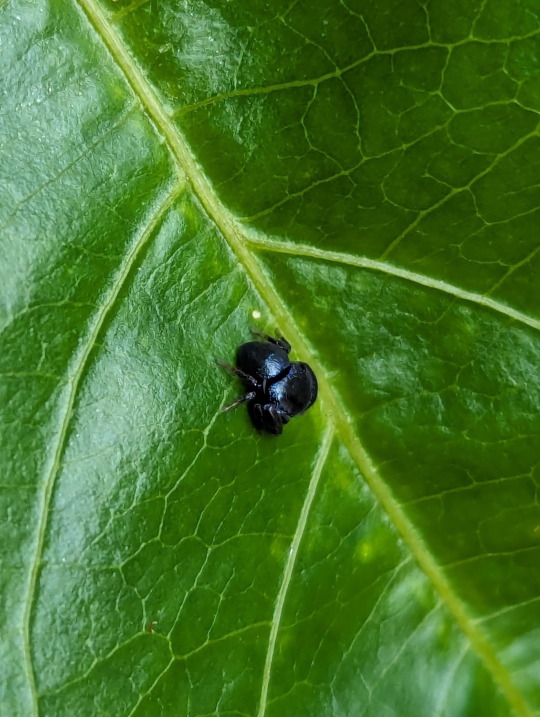



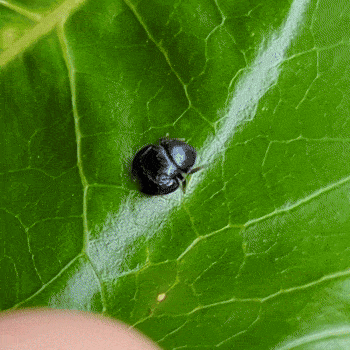
S. violacea, a very round species of jumping spider.
14/01/24 - Simaethula violacea
QLD:WET
#Simaethula violacea#gifs#Salticidae#Jumping Spiders#Araneae#spiders#spiders tw#Arachnida#Arachnids#Chelicerata#Chelicerates#arachnophobia tw#nature#invertebrates#invertblr#Arthropods#Arthropoda
276 notes
·
View notes
Text
#1926 - Melicytus ramiflorus - Māhoe


AKA Whiteywood
A small, much-branched tree from the Violet family, growing to a height of about 10m. In open lowland and lower montane forest throughout New Zealand it is one of the most common trees. It frequently germinates as an epiphyte on tree ferns. The bark is a whitish colour and the branchlets very brittle.
Decaying Māhoe leaves form characteristic skeletonised leaves, piling up around the base of the tree.
The scented, small, yellow flowers appear in late spring, and the purple berries in late summer and are eaten by native birds such as the Kereru, Tui honeyeaters, and geckos of the genus Naultinus. They don’t seem to be edible to humans, however. Both flowers and fruit grow directly from the trunk - ramiflory.
The Maori used the liquid from boiled leaves as an external treatment for rheumatism and scabies, but the main use of this species was in the friction method of fire lighting - a slab of the soft wood scraped with a pointed stick of harder species in order to make a flame.
There is, naturally, mythology about this, and perhaps predictably it involves Maui – the great trickster god of Polynesian tradition. One day Maui set out to learn the secret of fire, put out all the fires in his village, and volunteered to go meet with his Grandmother Mahuika the fire god whose fingernails were made of flame. He persuaded Mahuika to part with one of her fingernails, and then immediately extinguished it in a nearby river. Maui persuaded her to give him another nail, and another, and continued to put them out in the water. By the last nail, Mahuika realized what Maui was doing and in a fit of anger threw up a great flame that threatened to ignite the earth, boil the seas, and burn the forests. So Maui called on his ancestor Tāwhirimātea – god of the weather - to put out the flame.
Mahuika collected the last few sparks and looked for somewhere to place them. The trees of rata, hīnau, kahikatea, rimu, and miro all refused, but the kaikomako and mahoe accepted. Maui saw Mahuika place the spark of fire in these trees, and returned to his village to show his family and friends how they could bring out the fire by rubbing them together.

6 notes
·
View notes
Text

職場に向かう途中の商店街にある
お花屋さんで咲いていた、
白い「ハーデンベルギア」の花。
ハーデンベルギア属。
別名:コマチフジ(小町藤)。
学名:Hardenbergia violacea
撮影:iPhone14 Pro Max
83 notes
·
View notes



